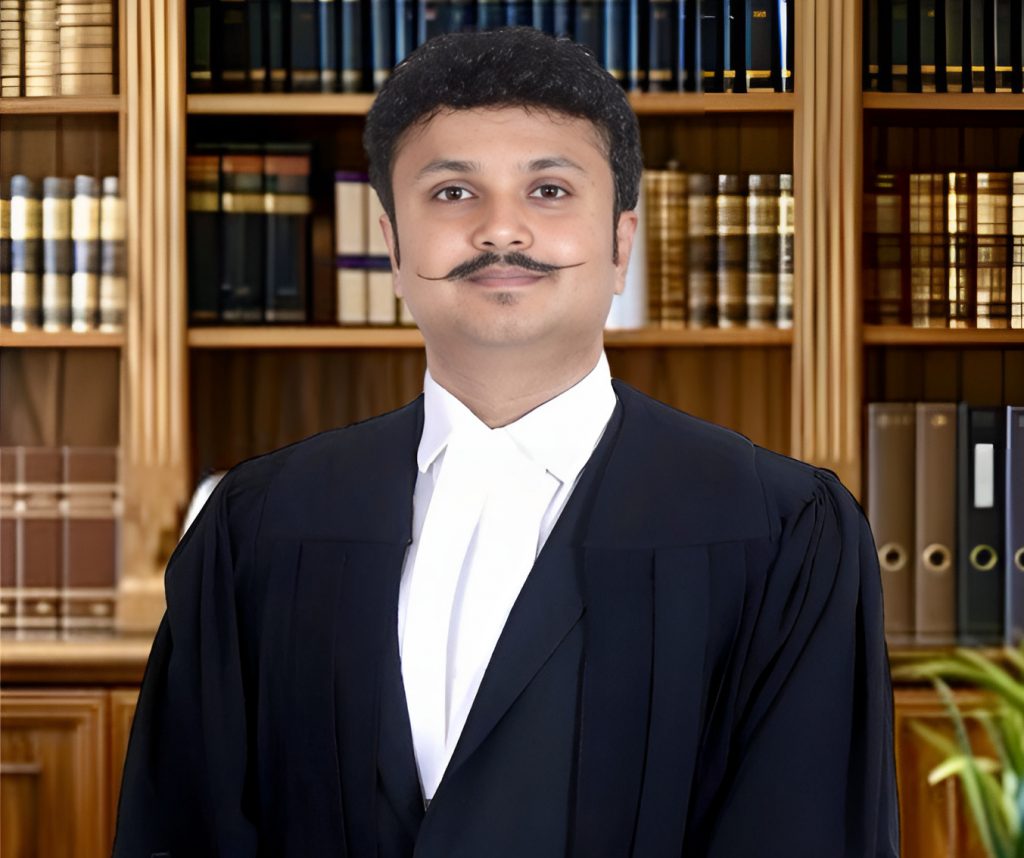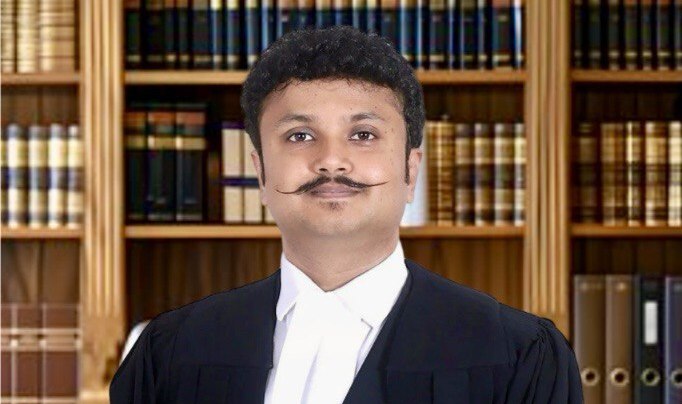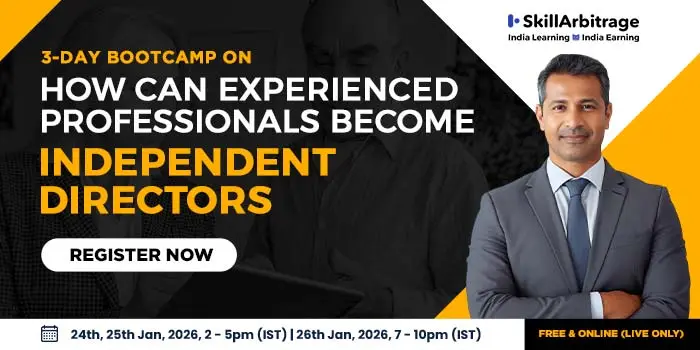This interview has been published by Anshi Mudgal and The SuperLawyer Team

Early in your career, you had the opportunity to work with various big names in the legal field. What were some of the most enriching experiences from those formative years that deepened your passion for the legal profession?
The privilege of working under legal titans like Mr. Ram Jethmalani and Mr. Fali S. Nariman during my early years was akin to stepping into a masterclass in advocacy. In 2007, while interning with Mr. Jethmalani, I was thrust into the frenetic pace of a high-profile criminal case at the Supreme Court. I vividly recall his electrifying presence in court, where he dismantled a prosecution’s argument with razor-sharp logic and an almost theatrical flair. One evening, as we prepared for a hearing in the high-profile Jessica Lall murder case, he shared a gem: “The law is not just about statutes; it’s about storytelling that moves hearts and minds.” This perspective transformed my understanding of advocacy, igniting a passion for crafting compelling narratives grounded in legal rigor.
Similarly, in 2009, assisting Mr. Nariman on a constitutional matter was a revelation. His meticulous analysis of Article 14 during a late-night briefing session taught me the art of weaving constitutional principles into practical arguments. Watching him argue before a Constitution Bench, I saw how his calm demeanour and scholarly depth commanded respect, reinforcing my belief that advocacy is as much about integrity as it is about intellect. These experiences cemented my love for the courtroom, where law becomes a living instrument of justice. I also remember an incidence where he asked me to draft something several times thereafter just near my breakpoint, asked me to get all the drafts and approved the 1st draft which I had shared saying it was the best one and I ought to have shown it to him. I didn’t understand the meaning of it then, however over a period of time I realised he taught me several valuable professional and life lessons through it.
Your academic and professional background is both impressive and diverse. Could you take us back to the initial experiences that sparked your interest in the field of law?
My fascination with law was born when our family friend Mr Jethmalani visited our home at Nagpur and there were tons of people there to visit him. I belong to a freedom fighters family and a family which has always been into social work, i was used to people visiting home. However people visiting Mr Jethmalani had a different approach and the respect commanded by him simply left an everlasting and permanent impression on me. He asked me “what I want to become when I grow up?”, I naively asked him, “what do you do?”, to which he said “I am a lawyer son”, so I promptly replied that I want to become a lawyer as well. That is the 1st time I said that and it was etched in my mind since then, as a teenager in 2001. That moment was electric, it showed me the law’s power to uplift the voiceless and the respect one commands with being true to one’s profession. My school debates on issues like caste discrimination and women’s rights further fueled this spark, as I realized advocacy could bridge ideals and action.
This conviction led me to pursue a B.A. LL.B. at RTM Nagpur University, where I immersed myself in moot courts and legal aid clinics. A particularly memorable experience was organizing a legal awareness camp for rural farmers and downtrodden on the occasion of Dusshera Festival in Nagpur under the aegis of our political science professor , where I explained various faucets of laws in Marathi, my mother tongue. Seeing their faces light up with newfound understanding solidified my resolve to make law accessible and impactful, setting the course for my career.
Your educational journey from RTM Nagpur University to Queen Mary University of London is inspiring. What motivated you to pursue an LL.M. in Commercial and Corporate Law abroad, and in what ways has that international exposure shaped your current practice before the Supreme Court of India?
The decision to pursue an LL.M. at Queen Mary University of London was driven by a realization that India’s legal landscape was becoming increasingly globalized. By 2010, I had seen how multinational corporations and cross-border disputes were reshaping commercial litigation in India. I chose Queen Mary for its reputation in international commercial law and arbitration, aiming to master the nuances of global legal frameworks. The program’s modules, International Commercial Arbitration, Commercial Conflict of Laws, and Intellectual Property in Creative Industries, were intellectually exhilarating, challenging me to think beyond Indian jurisprudence.
A defining moment was my dissertation on pre-arbitral interim relief, which required analysing cases from multiple jurisdictions. This global perspective proved invaluable when I returned to India. For instance, in the ABG Shipyard Swiss Challenge Process case at the Supreme Court, my understanding of international insolvency frameworks allowed me to craft arguments that aligned Indian law with global best practices. My London experience also honed my ability to navigate cultural and legal diversity, enabling me to represent clients like PT. Bara Daya Energi etc. with confidence. Today, this international lens informs my Supreme Court practice, blending global insights with constitutional rigor.
You’ve appeared in several high-profile Constitution Bench matters, including the EWS Reservation and PMLA Validity cases. How have such landmark litigations influenced your legal philosophy and approach to constitutional interpretation?
Appearing in Constitution Bench matters like the EWS Reservation and Prevention of Money Laundering Act (PMLA) Validity cases has been a humbling and transformative journey. The EWS case, which upheld reservations for economically weaker sections, taught me the importance of purposive interpretation to advance social justice. I recall a heated courtroom exchange where we debated the balance between equality and affirmative action, moments that underscored the Constitution’s role as a living document adapting to societal needs.
The PMLA case, challenging the validity of stringent anti-money laundering provisions, was equally profound. It highlighted the delicate interplay between state power and individual liberties, shaping my belief in proportionality as a cornerstone of constitutional interpretation. These cases have instilled a legal philosophy that views the Constitution as a dynamic framework, requiring advocates to harmonize fundamental rights with directive principles. My approach now emphasizes rigorous research, contextual analysis, and a commitment to ensuring that constitutional interpretations serve both justice and the public good.
As the Founding Managing Partner of Asal Legal Solution LLP, how do you navigate the demands of leadership while actively engaging in high-stakes litigation before the Supreme Court? What motivated you to establish your own practice in the first place?
Leading Asal Legal Solution LLP while litigating before the Supreme Court demands a delicate balance of vision, discipline, and teamwork. As Founding Managing Partner since, I’ve built a firm that thrives on collaboration and innovation. I delegate research and drafting to a talented team of associates, empowering them to take ownership while I focus on courtroom advocacy and strategy. We use case management software (Libra) to streamline workflows, ensuring I can prepare for high-stakes cases like the Maratha Reservation matter without compromising firm operations. Evening team meetings foster open communication, allowing us to tackle complex cases with agility.
My motivation to establish Asal Legal stemmed from a desire to create a practice that blends ethical advocacy with client-centric innovation. After years at Desai & Associates, I saw an opportunity to address gaps in legal services, particularly for clients navigating both Indian and international jurisdictions. Founding my own firm allowed me to take on diverse cases, from constitutional benches to international arbitrations, while mentoring the next generation of advocates. This independence has been liberating, enabling me to shape a legacy of impactful litigation.
Your consistent involvement in social initiatives, particularly through the Maratha Sewa Sangh, reflects a strong commitment to public service. How do you strike a balance between your legal practice and social responsibilities?
My involvement with Maratha Sewa Sangh and other initiatives is a natural extension of my belief that law must serve society and as a member of society one must give back to the society. As President of its Legal Cell since 2023, I’ve spearheaded legal aid camps and policy advocacy for marginalized communities, often working late evenings after court hours. For instance, organizing the first All India Conference for Rashtriya Maratha Seva Sangh was a logistical challenge, but my team’s support at Asal Legal ensured seamless coordination. I allocate specific days for social initiatives, using weekends for community outreach while reserving weekdays for litigation.
This balance is fuelled by my conviction that legal expertise carries a responsibility to uplift. My team handles routine legal tasks, freeing me to draft policy recommendations or write columns for Organiser and Kashmir Canvas. These activities recharge me, as the gratitude of a farmer understanding his land rights or a student inspired by a legal talk mirrors the fulfilment I find in courtroom victories. This synergy ensures that my legal practice and social commitments reinforce each other.
For law students aspiring to build a litigation practice like yours, what advice would you offer? What skills, mindset, or resources do you believe are essential for excelling in this demanding field?
To law students dreaming of a litigation career, my advice is to embrace the grind with passion and purpose. Litigation is a marathon, not a sprint, so cultivate resilience to navigate setbacks like losing a case or facing a tough bench. Key skills include:
- Legal Research: Be well versed with law and for that master platforms like SCC Online in order to build airtight arguments.
- Drafting: Hone the art of concise, persuasive pleadings, every word matters in court.
- Oral Advocacy: Practice clarity and confidence through moot courts and mock trials.
- Networking: Seek mentorship from senior advocates; my internships with Mr. Jethmalani and others were game-changers.
Adopt a growth mindset, view challenges as opportunities to learn as was taught to be by Mr Nariman. Early in my career, a dismissed petition taught me to anticipate judicial perspectives, sharpening my strategy. Resources like legal journals, bar association seminars, and internships in litigation chambers are invaluable. Above all, uphold integrity and empathy; clients trust advocates who fight for their cause with heart. Stay curious, stay ethical, and let your passion for justice drive you.
Litigation can be incredibly intense and high-pressure. How do you manage the stress that comes with maintaining a rigorous legal practice, and what do you do to safeguard your mental well-being?
The intensity of Supreme Court litigation, where deadlines loom and stakes soar, demands a robust approach to stress management. I start each day with 30 minutes of yoga and meditation, a ritual that grounds me and sharpens focus. A particularly vivid memory is meditating before arguing the auction case, which calmed my nerves and clarified my arguments. Regular runs in Talkatora Gardens and a disciplined diet keep me physically resilient, countering the sedentary demands of legal work.
Professionally, I rely on my team at Asal Legal to share the load, delegating research and filings to avoid burnout. I set boundaries, reserving evenings for family or reading historical biographies, which offer perspective on life’s pressures. My social initiatives, like blood donation camps with Maratha Sewa Sangh, are surprisingly rejuvenating, helping others reminds me of the law’s broader purpose. These practices, combined with a supportive network of peers, ensure I thrive in the high-pressure world of litigation.
Looking back at your journey so far from internships with iconic legal figures to leading your own firm, what has been your biggest takeaway or guiding principle as a legal professional?
Reflecting on my journey, from a wide-eyed intern in Mr. Jethmalani’s chambers to leading Asal Legal Solution LLP, my greatest takeaway is that advocacy is a blend of conviction and compassion. Whether arguing a marathon case or advising a small business like ILA Naturals, I’ve learned that the law’s true power lies in its ability to humanize disputes. My guiding principle is to approach every case with unwavering integrity and a deep understanding of the client’s story. This means not just winning arguments but ensuring justice resonates, whether for a corporation or a community. This ethos, forged through years of mentorship and practice, drives me to leave a lasting impact on both law and lives.
Get in touch with Akash Kakade –




